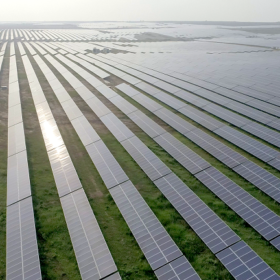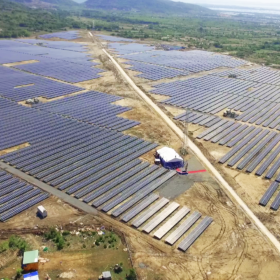Bhutan signs 600 MW PPA with PTC India
Bhutan will procure up to 600 MW of power from the Indian market to meet its requirement during the dry winter season.
L&T sells stake in L&T IDPL
The Indian multinational EPC provider has sold its 51% stake in L&T Infrastructure Development Projects to a platform backed by Edelweiss Alternatives.
NTPC tenders power transformers package for 4.75 GW Khavda RE park
NTPC’s 4.75 GW project is part of 30 GW hybrid renewable energy park at Khavda village in the Indian state of Gujarat.
Power minister launches transmission system plan for over 500 GW renewables capacity by 2030
India’s Ministry of Power has chalked out a comprehensive plan for the evacuation of power from the planned 500 GW of renewables capacity by 2030. The plan envisages an additional transmission system and the installation of battery energy storage capacity.
Sterlite Power acquires Kishtwar transmission project in J&K
The project comprises a 400/132 kV gas-insulated substation at Kishtwar and a 400 kV Kishenpur-Dulhasti line-in line-out transmission line.
India needs $300 billion to meet 2030 target of 500 GW non-fossil energy capacity
A new report by Arthur D. Little presents an integrated blueprint for India to achieve its true potential in the power sector with a focus on renewables.
Larsen & Toubro secures power transmission projects in Saudi Arabia
The Indian multinational EPC provider has secured significant transmission lines and substations projects in Saudi Arabia.
Hitachi Energy to supply power transformers for India’s largest solar energy park
Hitachi Energy will provide made-in-India power transformers for NTPC’s upcoming 4.75 GW solar energy park in Gujarat.
Waaree Renewable Technologies to merge three arms
The solar equipment manufacturer and power producer announced this week its board of directors had approved the scheme for the merger of Sangam Rooftop Solar, Waaree PV Technologies, and Waasang Solar with the company.
India’s power market design must evolve as renewables’ share rises, says IEEFA
A new report by IEEFA says India’s power market design must evolve to transition faster to an ultra-low-cost renewable energy-based electricity system.












